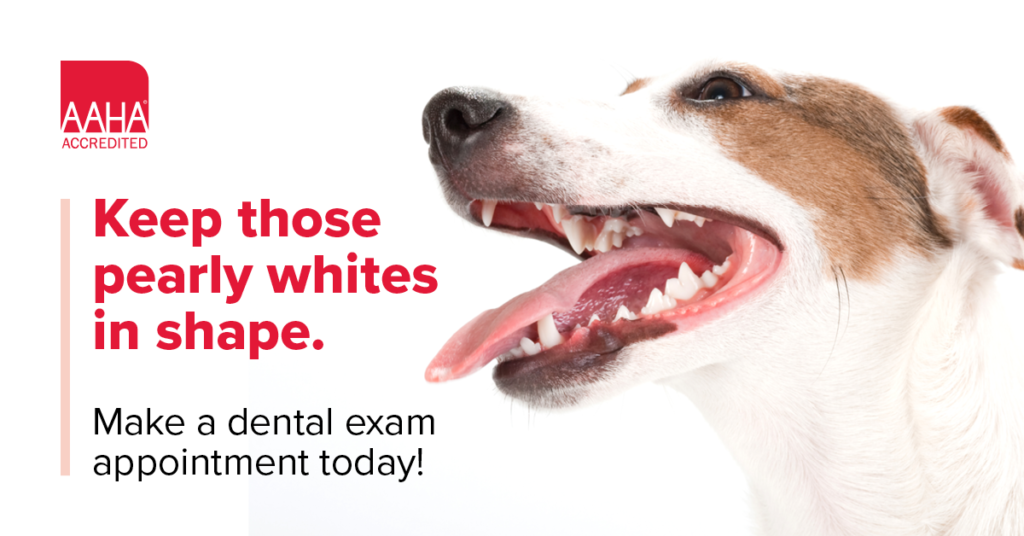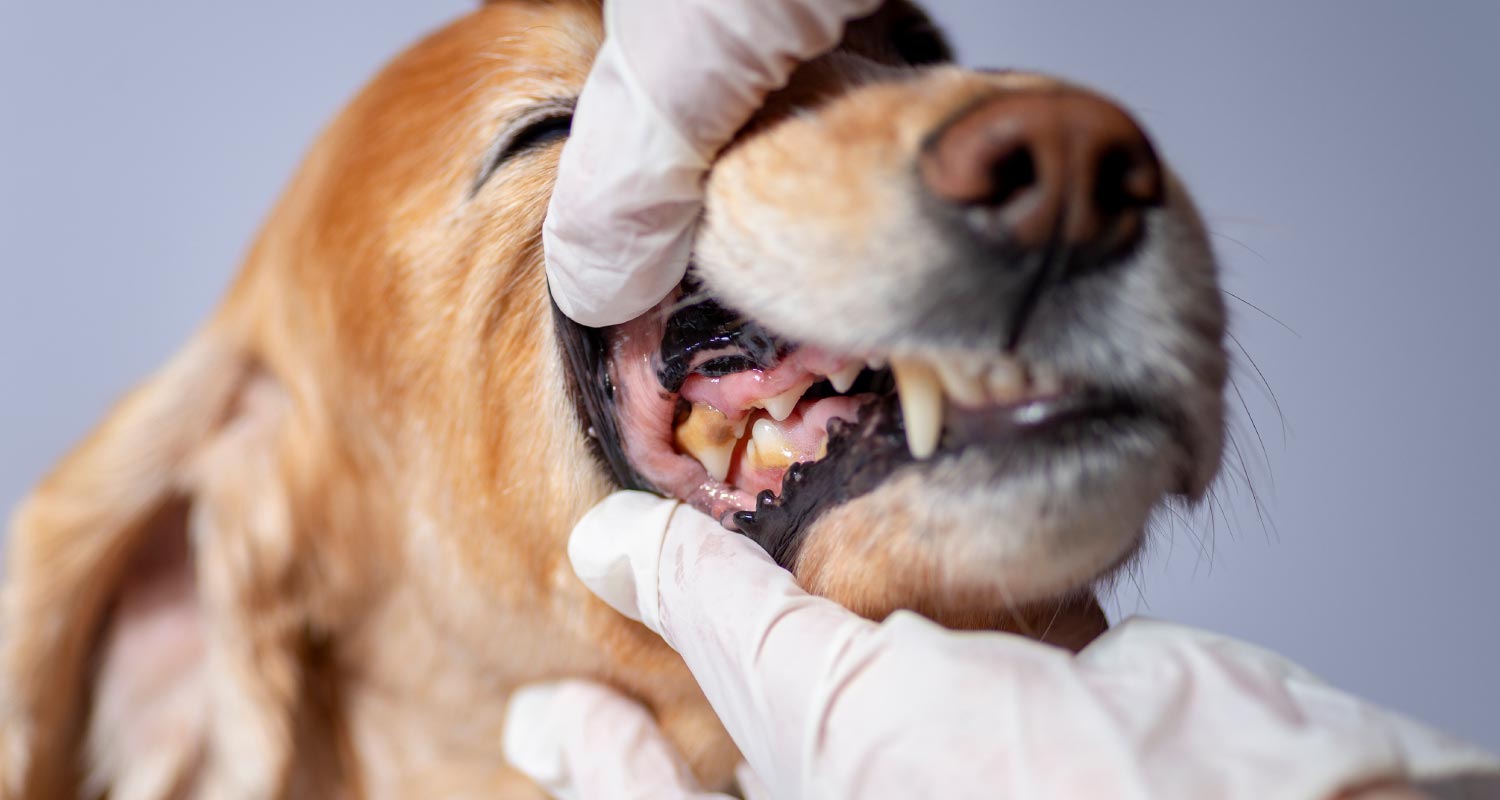At Croton Animal Hospital, we continue to see a number of pets with minor to serious dental disease. So in honor of National Pet Dental Health Month, here are some veterinary dentistry tips and reasons to get your pet in for their yearly dental checkup.

1. It’s Not Always Easy to See Cavities
Even if your pet’s teeth look ok, there could be decay underneath the surface that isn’t totally obvious. Black, brown or red looking cavity spots show up only when the decay has made more significant progress.The best way to catch them early is for you vet to diagnose and treat cavities before they cause significant problems for the tooth.
2. Pet Gum Disease is Common
It’s been cited by the American Veterinary Medical Association that by the time they’re 3 years old, many pets already display evidence of gum disease. Look out for redness or swelling, gums bleeding, or newly excessive drooling. Periodontal disease often becomes painful for your pet if untreated, resulting in tooth loss or even jaw problems.
3. Pets Don’t Always Show Us That They’re in Pain
Natural, ancient instincts can motivate your pet to hide pain or sickness. In nature, predators target weak or hurt animals when they hunt. Your pet may be concealing the fact that they’re in pain, but consistent preventative veterinary dental exams can alleviate the issue.
4. Unknown Dental Issues Can Be Detected
There are additional concerns related to your pet’s dental health other than the most common – tooth decay and gum disease. For instance, if your pet is a big chewer, there could be tiny cracks or damage that could create an abscess.
5. Treat Small Dental Problems Before They Become Big Problems
Whatever your pet’s dental issue, from gum disease to an abscess, consistent exams often catch conditions when they’re still relatively minor. That makes them less harmful to your pet’s health.
6. Your Veterinarian Can Spot Issues That Are Common in Specific Breeds
There are so many breeds of dogs and cats, and being a pet owner, you know that some breeds have a genetic predisposition for certain health conditions. Your veterinarian will look out for any common dental health issue specific to your pet’s breed.
7. Teeth Cleaning Prevents Many Dental Health Conditions
Getting your pet’s teeth cleaned fairly regularly removes the plaque and tartar that can cause gum disease and tooth decay. Our digital dental radiology resources will also evaluate the condition of teeth below the gum line – where 60% of the tooth resides.
8. Breath Odor Improves After a Cleaning
Some dogs and cats have some seriously malodorous breath. One of the best ways to improve breath odor is to remove the bacteria causing it during a cleaning.
9. Healthy Teeth and Gums Contribute To Your Pet’s Overall Wellness
Things like an abscess or gum disease elevate the odds of your pet developing other conditions like kidney or heart disease. If anything is diagnosed in the exam, getting issues treated quickly reduces your pet’s chances of suffering from a more serious condition.
10. You Could Help Improve Your Pet’s Mood
It’s pretty common for pets to display a happier disposition after their dental issues have been treated. Pain affects pets’ behavior in different ways, sometimes all they need is a checkup to find what’s bothering them.
Is your pet due for a dental exam? Contact us to schedule a convenient appointment or ask any questions you may have about your pet’s dental health.




